By Autumn Shelton with RealWV
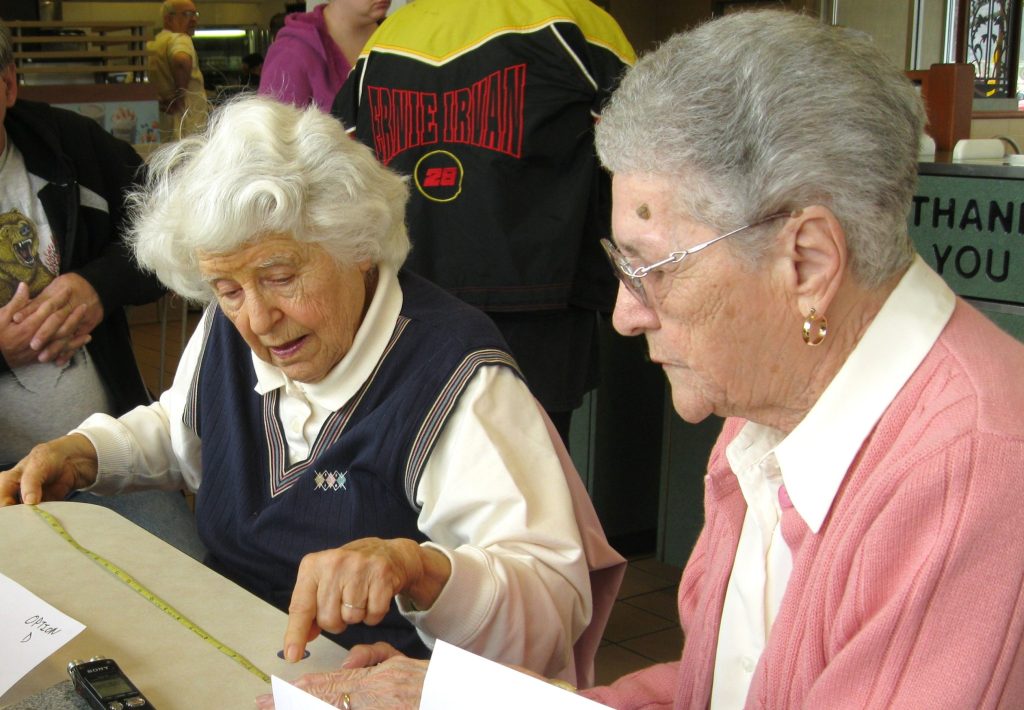
Almost two decades ago a new type of social movement started in West Virginia. It is a quiet movement, centered around a sense of community, action, and breaking boundaries. It is the American Rosie Movement, and their mission signifies the historical phrase “We Can Do It!”
According to the movement’s founder, Anne Montague, the American Rosie Movement has two main goals. The first is to find people who wish to honor the legacy of women called “Rosies” or “Rosie the Riveters” who went to work, often in shipyards and factories, during World War II.
The second goal is to return society into one where everyone works together for the greater good.
“The whole understanding of democracy is not to fight amongst one another like we are in a football game,” Montague said in an interview with RealWV. “The aim is to have a country that is working together.”
She said this sense of democracy is what helped America during the war, and it will be what moves us into the future.
“If I hadn’t seen the women pull together in World War II, I wouldn’t think that we could pull together, but, yes, we can,” Montague stated.
Now 84 years old, Montague was a young girl when her mother, Jessie Jacobs-Frazier, started work as a Rosie at the former Polan Industries, located in Cabell County.
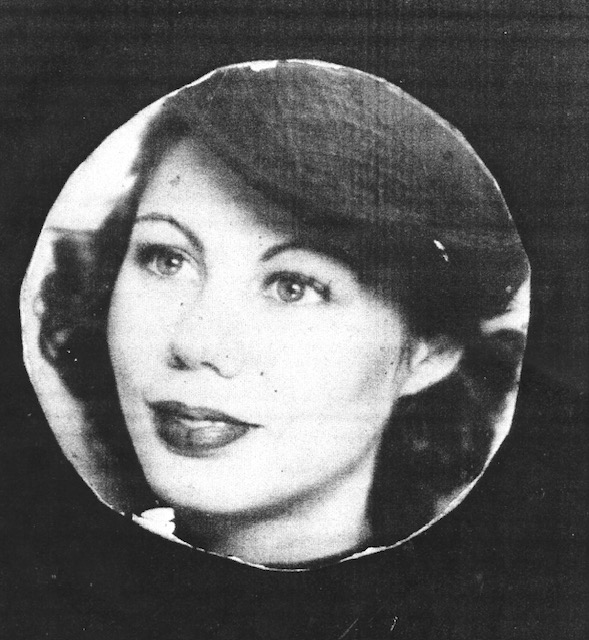
In one of Montague’s writings, she explained that she never forgot those mornings when her mother, a Rosie, would wake up, put on her homemade dresses and fix her hair and makeup as she prepared to do whatever she could to “stop tyranny throughout the world.”
This is why, years after her mother’s passing, Montague decided that she wanted to find Rosies throughout West Virginia, and tell their stories.
In 2006, she founded the nonprofit organization “Thanks! Plain and Simple, Inc,” to help bring people together through acts of service. The American Rosie Movement is an ongoing effort of that organization.
Montague said that she structured the movement to be enacted in three phases. The first phase, now complete, was to meet with Rosies and discuss with them how they wanted their legacy to be defined. To date, about 210 women have shared their stories with Montague.
The first to share with Montague was Garnet Kozielec, who left her West Virginia home in the 1940s to travel the country making fighter jets and bombers.
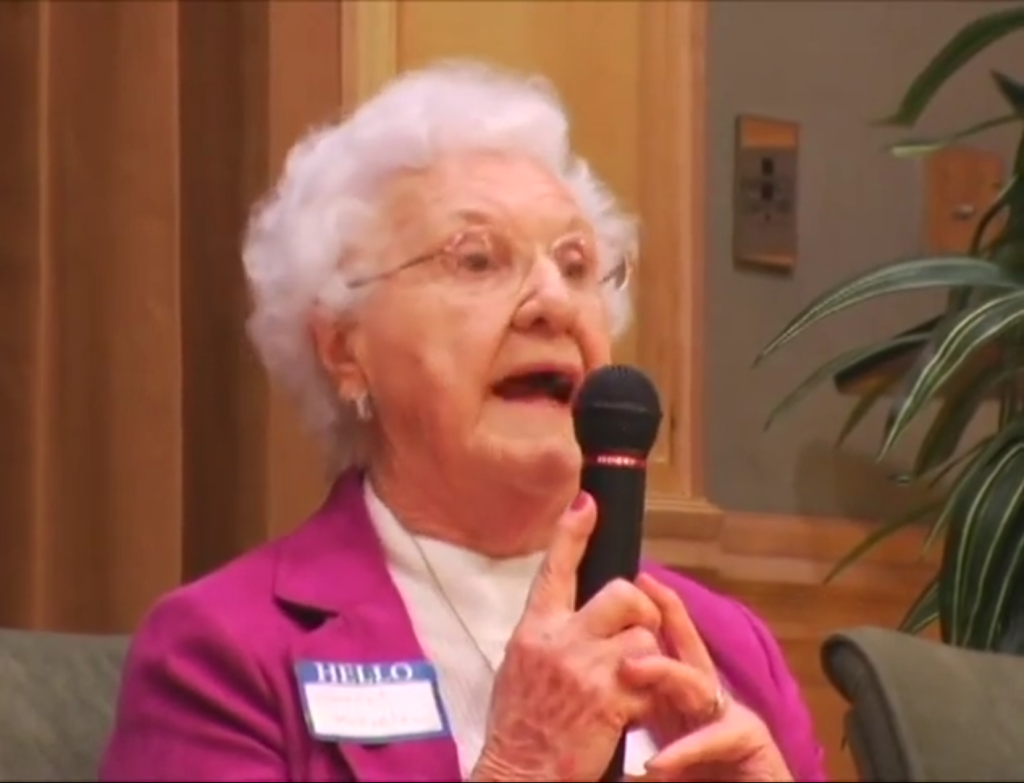
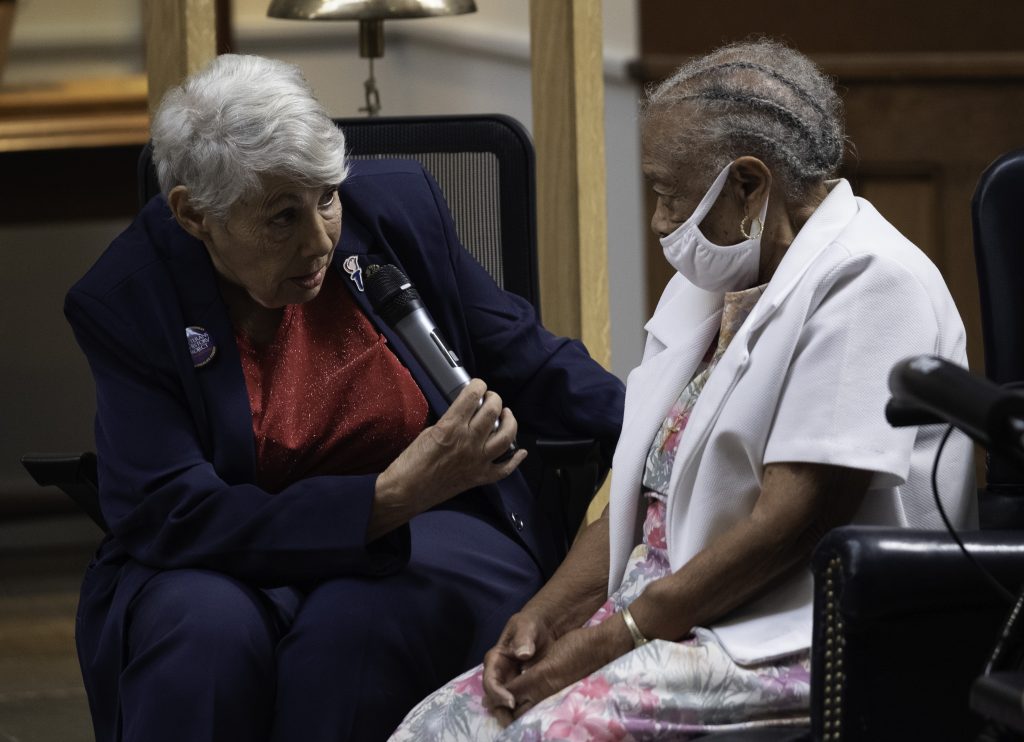
However, Montague said, at first, it was hard to find other Rosies, that is until the Charleston Gazette-Mail printed an ad, featuring a photo of her mother, that stated, “Help us find our Rosies.”
“That ran on March 25, 2009,” Montague said, adding that less than a week later, “We had 14 Rosies, and they kept coming. They are still coming to us.”
To tell as many of their stories as possible, Montague began working with West Virginia filmmaker B.J. Gudmundsson to create the documentary “We Pull Together: Rosie the Riveters, Then and Now,” with funding from the West Virginia Humanities Council. The film was released in 2011.
Montague continued that the American Rosie Movement has now entered phase two, which is creating a national model to help other communities identify Rosies, and to invite the public to create community-based projects that preserve the Rosie legacy.
“Every one of our projects should essentially meet the legacies that Rosies have told us they want to be remembered for,” Montague said. “They don’t want to be remembered just for making armaments that helped us win World War II. They want to be remembered because they did pull together. They filled a huge gap. There were as many women working on the home front as there were men in the military.”
Project examples may include painting Rosie murals on buildings, naming bridges after Rosies or dedicating classrooms, parks and buildings to Rosies, Montague noted.
In 2012, the city of St. Albans, in Kanawha County, dedicated a park to honor Rosies, Montague said.
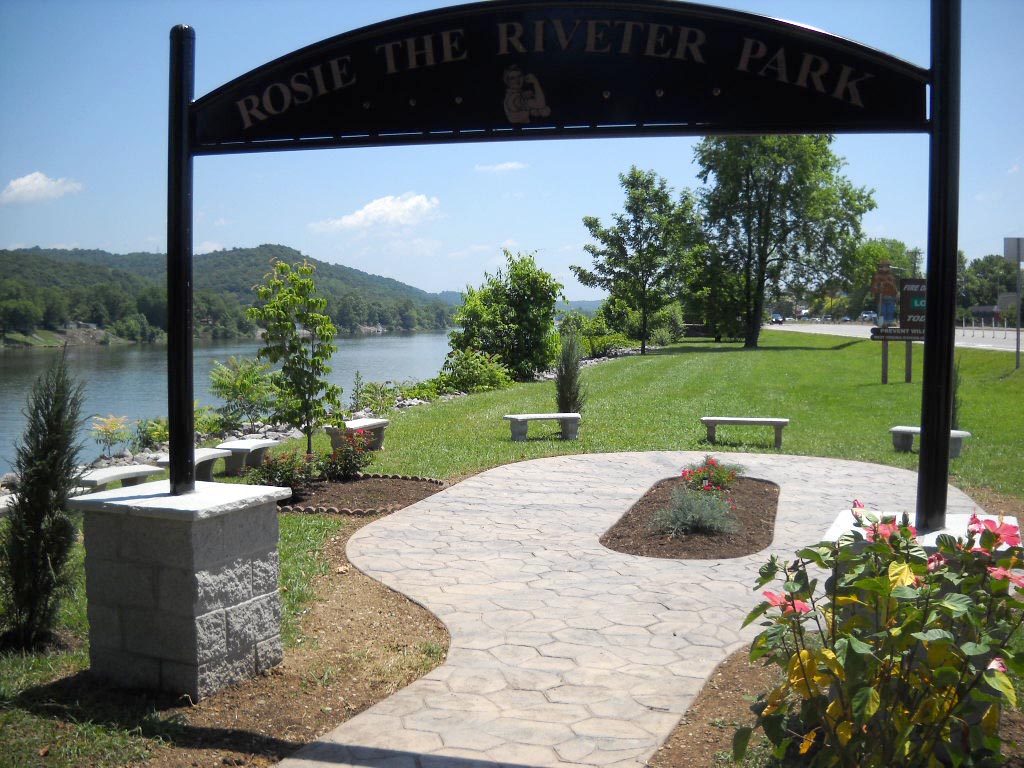
Also that year, the West Virginia State Legislature passed a bill dedicating a government building in Huntington to Rosies–the nation’s first. Unfortunately, Montague noted that the building still does not have signage showcasing this historical milestone.
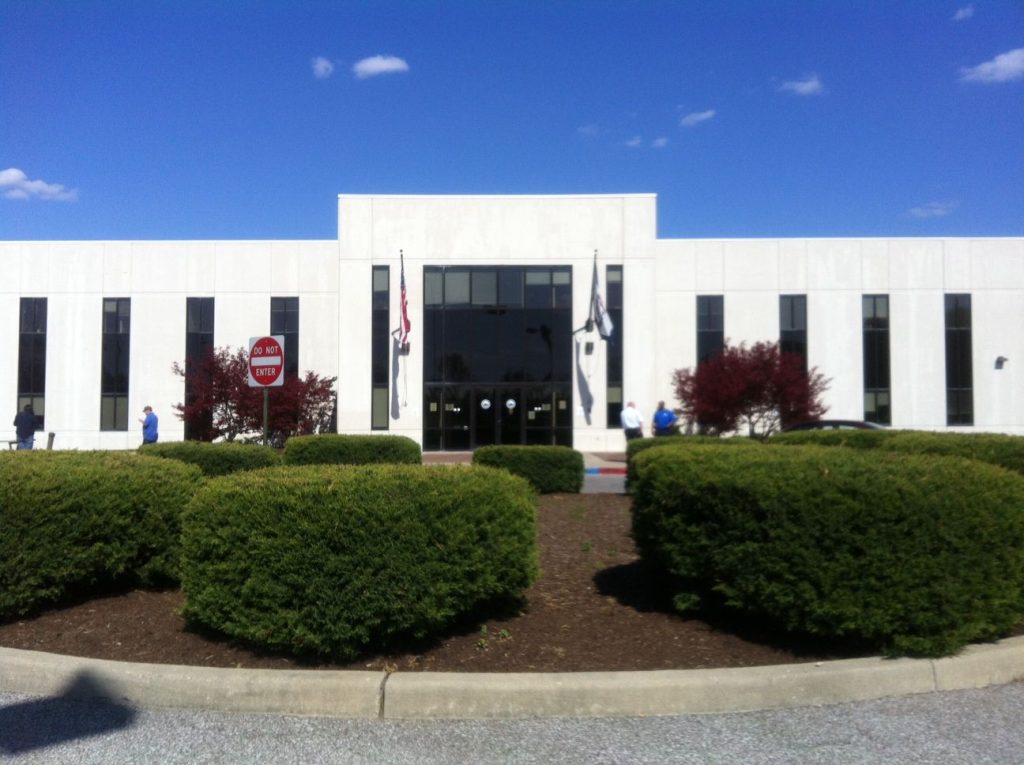
Additionally, just last year, a middle/high school, located in Gilmer County, dedicated a classroom to Rosies, Montague stated, adding that she invites other classrooms to do the same.
“We are encouraging the public to get involved and do a Rosie project that is permanent,” Montague continued. “It has to be sustainable, achievable and a simple statement as to what the Rosie’s are about . . . whatever project is done, the local community can brag about it, but also realize that people across the country are doing the same thing.”
The final phase, Montague explained, will most likely happen when all the Rosies are gone, but will include achieving an American identity that centers around their mission of cooperation and pulling together in times of need–no matter our differences.
“In ten years, I want everyone to be doing their own thing,” Montague said. “I would like to see a Rosie the Riveter trail so people can go from town to town and see what work people have done in those towns to honor the Rosies.”
Montague said that anyone wishing to become involved in the American Rosie Movement may send her an email at team@americanrosiemovement.org, or visit the American Rosie Movement website, https://americanrosiemovement.org/.
Although funding is always an issue, Montague noted she will do her best to help anyone who reaches out.
“There is something about the Rosies, and something about working together that it’s really giving people hope,” Montague concluded. “The legacy of Rosies is to pull together and do the highest quality work in a spirit of cooperation, because, if we don’t, we have wasted our freedom. We need to work together again as a society, and we need to do good work and we need to do it, basically, to save our freedom.”
Originally posted: https://therealwv.com/2023/10/06/american-rosie-movement-honors-those-who-came-before-and-works-together-for-the-future/

Pingback: voltaren usage instruction pdf
Pingback: sitagliptin vs vildagliptin
Pingback: acarbose nesidioblastosis
Pingback: ivermectin 0.1 uk